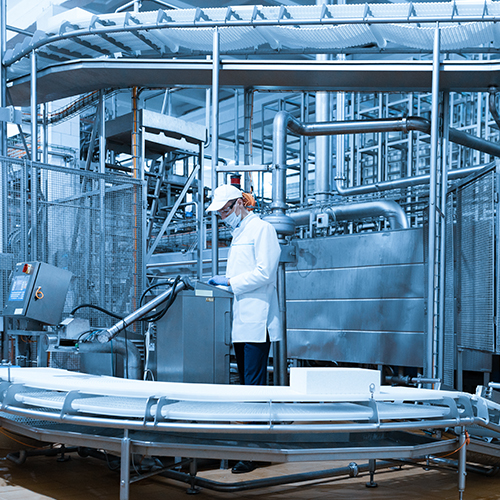 Alcoholic Beverage (AlcoBev) industry
Alcoholic Beverage (AlcoBev) industry
-
CCUS in the Alcoholic Beverage (AlcoBev) industry primarily relates to the management and utilization of CO2 produced during the fermentation process. In the production of beer, wine, spirits, and other alcoholic beverages, yeast ferments sugars to produce alcohol and CO2. The carbon capture, utilization, and storage in this context involve capturing the emitted CO2 and repurposing it for other applications or storing it.
Capture and Utilization:
- During fermentation, CO2 is emitted which can be captured through gas scrubbers or fermentation caps that channel the gas into storage or treatment units. The captured CO2 can be used in various applications, such as carbonation in soft drinks and beers, chilling and freezing, pH control, or inerting where CO2 is used to displace oxygen to prevent the degradation of a product. Another innovative application is using CO2 to grow algae that can be used as feedstock for biofuels or in wastewater treatment.
- Innovative start-ups are also emerging in the AlcoBev industry, utilizing captured CO2 for creating value-added products. For example, some companies are transforming CO2 into a key ingredient for making beverages or even creating diamonds from beer-based CO2 emissions.

Benefits of CCUS in the AlcoBev Industry
- Reduction in CO2 Emissions: The most evident benefit is a decrease in carbon emissions. The process of fermentation produces a significant amount of CO2, which if released into the atmosphere contributes to global warming. By capturing and storing or utilizing this CO2, breweries, wineries, and distilleries can reduce their carbon footprint.
- Cost Savings and Revenue Generation: Captured CO2 can be repurposed for in-house use such as carbonation in beverages, saving costs on purchasing CO2. In addition, businesses can also sell excess CO2 to other industries, providing an additional revenue stream.
- Energy Efficiency: Some businesses are exploring ways to use the captured CO2 for in-house energy generation, enhancing the overall energy efficiency of the operations.
- Sustainable Branding: Implementing CCUS can be a key part of a company's sustainability efforts, appealing to eco-conscious consumers and potentially boosting brand image and market share.